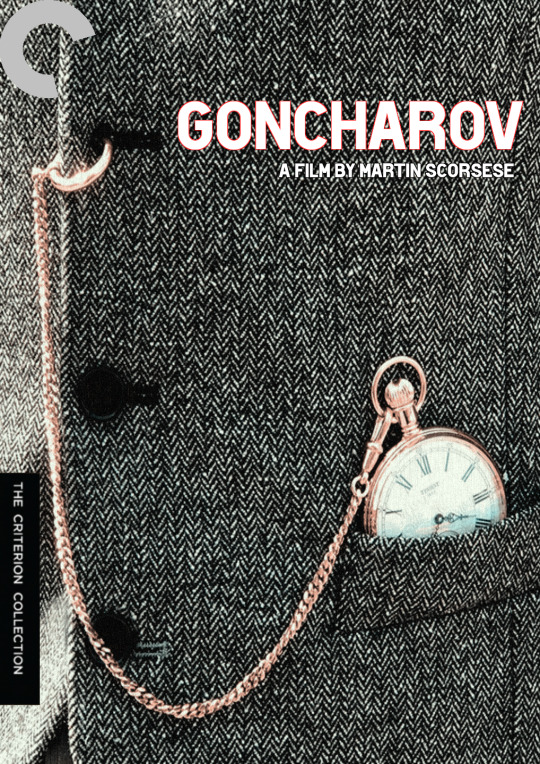#martin scorsese goncharov
Text
Okay, but have we considered the new Goncharov effect, which is that now posts about real movies sound fake?
...A film called Glass Onion, you say? (hmmm, like the parody site “The Onion”?) In which international heartthrob and Bond actor Daniel Craig plays a confirmed gay character? In the middle of a murder mystery? On a beautiful exotic Greek island? With the legendary and gorgeous non-binary bicon Janelle Monáe as a part of the cast as well? In a double role? All of my queer heart’s dreams coming true in one subtextually homoerotic action movie? Nice try, Tumblr. I’m not falling for that one twice.

#goncharov#goncharov (1973)#the goncharov effect#glass onion#daniel craig#janelle monae#janelle monáe robinson#unrealism#tumblr games#tumblr shenanigans#fandom#fandom humor#fh#tumblr#martin scorsese's goncharov#martin scorsese#scorsese's goncharov#martin scorsese goncharov#not sure if#not sure if meme
503 notes
·
View notes
Text
there is simply nothing more tumblr™️ than goncharov.
#thestaffoffice#staff interactions#staff 🦀#/j for legal reasons#bring back the crabs#the staff office#goncherov#goncharav#gonchposting#goncharov#goncharov 1973#scorsese goncharov#martin scorsese#martin scorsese goncharov#matteo jwhj 0715#katya deserved better#katya#ice pick joe#naples#staff#goncharov movie#Goncharov film#tumblr culture#unreality#continued gonching#gonchrey#gonchandrey#goncharov art#goncharov meta#goncharov headcanons
402 notes
·
View notes
Photo

Goncharov/Mafia/Anarchy based moodboard~ ^^
For an anon! Hope I captured the essence of that amazing movie for you!
Want one? send an ask~ -mod Jay
#goncharov#martin scorsese goncharov#goncharov movie#unreality#tw unreality#unreality tw#mafia#mafia aesthetic#anarchy#anarchy aesthetic#not lgbt#edit#edits#moodboard#moodboards#mood board#mood boards#mood#moods
73 notes
·
View notes
Text


#goncharov meme#goncharov ice pick joe#goncharov 1973#goncharov#martin scorsese goncharov#martin scorsese#meme#ice pick joe#joseph ice pick joe morelli#john cazale#the greatest mafia movie ever made#god meme#mario ambrosini#al pacino#fanfic#fanfiction
144 notes
·
View notes
Text

Goncharov (1973) dir. Martin Scorsese
Criterion Release Cover
#goncharov (1973)#goncharov posting#Goncharov#martin scorsese#martin scorsese goncharov#robert de niro#al pachino
56 notes
·
View notes
Text
#unreality#plato#tumblr#poll#unreality poll#atlantis#goncharov#goncharov poll#atlantis poll#martin scorsese#martin scorsese goncharov#greek mythology
20 notes
·
View notes
Text
Katya's relationship with Sofia is so complex because of the way nothing is said about it onscreen. It is ambiguous, it is liminal and by the virtue of its existence, it could be anything, romantic, platonic and even something that transcends language. And when Katya loses Sofia after desperately trying to hold on to her, it breaks something inside her
34 notes
·
View notes
Text

imagine, if you will, the south of italy. a land of pasta and polenta. a window into an italy long gone.
what if i told you that all was not as it seemed in fair sicilia?
i ask you to imagine now that self same napolitano countryside, ravaged by crime that is at once familiar and alien. a mafia yes, but filled with russians, not italians.
absurd? maybe. frightening? certainly. but this world exists.
if only in
the goncharov zone
37 notes
·
View notes
Text
Sooo... Where's the coffe shop AU where Goncharov and Katya are in a lavender relationship and they keep going on "dates" in this little cafe specifically to see the two cute baristas???? Sofia sensing this totally not cute regular is unhappy so she tries to befriend her to learn what's going on??? Goncharov mentioning he needs someone trustworthy to help him fix something or other in their apartment while trying to make small talk with andrey who says "I'm trustworthy"??? Sofia and andrey smoking and drinking and laughing and maybe crying a little bit after their late night shift while talking about how they got themselves into this mess??????
#natasha is just living her best life bc i said so#ice pick joe is there aswell ig#martin scorsese#martin scorsese goncharov#goncharov#goncharov 1973#andrey daddano#katya goncharov#sofia toussaint#ice pick joe#goncharov natasha#goncharov sofia#goncharov katya#goncharov andrey#/j#i think#I'm not sure anymore lol#unreality#me post
34 notes
·
View notes
Text

So this is WEIRD... I was doing newspaper archive research for an entirely different project, and I stumbled upon this 1979 article about some of the problems on set of Goncharov.
I haven't been able to find anything else in the archives about this Sergey Gargiulo guy, I don't know what happened after this article, and despite mutiple in-depth searches, I can't find any obituary or anything for him from 1979 to 2010. He would have turned 100 in 2011, so there's no way he lived much longer than that, right?
The other thing is that I've looked and looked, but no one else has mentioned this kind of thing happening on the set. It appears that this guy was the only one who had these kinds of complaints? Was he silenced after this? Did anyone else speak up?
I've uploaded the text of the full article below. Sergey Gargiulo said that the only person he trusts in all of Hollywood is Lynda Carter @reallyndacarter and that if you want to know the truth about Goncharov, she's the only person he trusted.
Anyone else think this is just odd?
Full text of article:
Consultant breaks silence over problems on set of “Goncharov”
April 29, 1979
By Jolene Irsca, Staff Reporter
Brooklyn, NY - Sergey Lorenzo Ivanov Gargiulo sprawls in a cracked, olive-green leatherette recliner in his Brighton Beach home and lights his fifth White Owl cigar of the day. His wheezing laughter, exuberant and joyful over the sounds of the game show on his television set, is a stark contrast to the grave subject matter that he has invited me here to discuss.
As the sixth anniversary of the film “Goncharov” (1973) approaches, Gargiulo feels that it is finally time to tell his story. His own clock may be running out, says Gargiulo, after he received a diagnosis of esophageal cancer last autumn. Despite the seriousness of the illness, Gargiulo, who is turning 68 next week, doubts the veracity of the one-year timeline that his doctors have given him.
“The doctors don’t know what the f— they’re talking about, the f—ing morons,” Gargiulo spits around the cigar bitten between his bright white teeth. “I’m still gonna be alive in forty f—ing years… but it does make you think. It makes you think.”
Gargiulo’s haste, he says, stems from the urge to seek justice and right severe wrongs, a moral code that seems highly ironic, coming as it does from a man who describes himself as a “Russian-Italian thug, a cazzato svolach from way back,” as he so colorfully puts it.
“[Martin] Scorsese knows what happened,” Gargiulo rumbles in his deep, Brooklyn-by-way-of-Odesa-with-a-semester-abroad-in-Naples accent. “That motherf—er knows exactly what happened. And he knows that I know he knows, and I’m not gonna let that figlio de puttana, that suka blyat stronzo motherf—er off the hook.”
So what, in Gargiulo’s opinion, actually happened?
In order to answer that question, we must travel back to Naples, Italy to August of 1972, when “Goncharov” began filming in the San Giovanni a Teduccio neighborhood.
Because of his unique Russian-Italian background, Gargiulo was hired as a cultural consultant on the set of the film, directed by fresh auteur Scorsese. “Goncharov” was just Scorsese’s third full-length feature film (shot between “Boxcar Bertha” and his critically acclaimed “Mean Streets”), and written by Matteo JWHJ 0715, who is widely regarded as a genius for his award-winning body of work since 1967, including three consecutive Academy Awards for Best Screenplay, and two Best Screenplay awards at the Cannes Film Festival. (A notorious recluse who refuses to grant interviews or even show up to accept awards, Matteo JWHJ 0715 declined our request to be interviewed for this article.)
Gargiulo’s expertise in bridging the hardened worlds of the Neapolitan Camorra and the Russian Bratva, combined with his culinary skills (Gargiulo opened the Michelin-starred restaurant Risotto e Rassolnik in Naples in 1960, and has won acclaim for such Russo-Italian fusion dishes as polpi alla luciana pelmeni and pizza kholodets) meant that he was uniquely positioned to advise Scorsese on the intricacies of “Goncharov,” the sprawling saga of a Russian-born discotheque owner (played by Robert de Niro) who travels to Naples and becomes embroiled in mafia activity.
The offer of a cushy consultancy, and the opportunity to have a hand in the creation of the film hooked Gargiulo right away. He also hoped that the film would heighten visibility and positive representation for vorami v zakone and mafiosi alike, and show the world that there was more to those groups than just organized crime.
“I was getting a little worn down, I’m getting older, and I thought taking a short break from the restaurant grind might be a nice little vacanza, you know? Plus when I met with Scorsese, he was very complimentary, very professional. I was expecting a well-run production.”
But when he arrived on set, Gargiulo says, he was taken aback at the lack of safety measures, including the fact that Scorsese allowed actual Italian and Russian gang members to portray minor characters and to interact with the Hollywood stars freely both on-set and off.
“You can’t have those guys, those prestupniki mixing with the f—ing actors, you know? I mean, you can’t mix good guys with hard motherf—ers like that. They cannot be trusted.”
I ask Gargiulo to elaborate.
“I saw minchiata like you wouldn’t believe. Near the start of the shoot, John [Cazale] and this Russian guy, this big motherf—er from the Kapotnya district in Moscow, Alexei, they were rehearsing the ice pick stabbing scene. And John refused to use the stunt icepick, he wanted to use a real one.”
Upon seeing the look of shock on my face, Gargiulo nods at me, his eyes wide. “You heard me. I told Scorsese not to let John do that, but he said there was no way John could hurt the guy, that they were gonna film it from a certain angle so that it only looked like John was stabbing Alexei. And then what do you know? We had to call the cazzo emergency services because Alexei almost lost his eye for real.”
Gargiulo shakes his head in disbelief. “He was a sniper for the Bratva, a real up-and-comer. Alexei almost lost his livelihood over John’s negligence… coglione, kozyol.”
When asked to provide additional examples of issues on the set of “Goncharov,” tears come to Gargiulo’s eyes, and he has to take a few moments to collect himself before continuing.
“One day, right after we broke for the afternoon, I caught Cybill Shepherd teaching two of the little Napolitano guys how to stab someone in the lungs from behind so they couldn’t scream. I saw red, I’m telling you. Those guys were innocent little ragazzi, little foot soldiers. All they knew how to do was run drugs and pickpocket, and here she was corrupting the f— outta them. I reported that to Scorsese right away. But…” Gargiulo trails off, and I prompt him to continue when he’s ready.
“Scorsese said it wasn’t a problem,” Gargiulo growls, wiping his eyes. “He said that I misunderstood, or that she was just rehearsing with them… but she didn’t have a scene like that in the movie, so what the f— was she doing? Ty che, blyad, you know?”
Gargiulo says that these two incidents (along with four mysterious crew deaths, accusations of embezzlement, Robert de Niro’s refusal to break character for the entire five-month shoot, and rumors of Scorsese’s crippling gelato addiction) paint a picture of a production that was out of control from the beginning.
“We deserve answers,” says Gargiulo. “Those of us who were harmed, those of us in the Russian and Italian mobster communities who were injured at the hands of those hardened Hollywood f—ers, we deserve some justice. The whole shoot was a f—ing razvaluha from the very beginning. Those movie guys should never have been allowed to step foot in Naples, piz’duk bastardi.”
When asked if anyone can back up his claims, Gargiulo smiles, looking peaceful for the first time since I stepped foot into his home.
“There’s only one person I would trust in all of Hollywood, one perfetta, dorogoy, immacolata cherub in the whole entire production who knows what the hell went down. You want to know what really happened? Ask Lynda Carter.”
And with that, Gargiulo excuses himself for his afternoon nap, and ushers me out the door.
***
Mr. Gargiulo declined to be photographed for this article, citing privacy concerns.
#goncharov#goncharov 1973#goncharov the lost interview#sergey lorenzo ivanov gargiulo#goncharov consultant breaks silence over problems on set#consultant breaks silence over problems on set of goncharov#sergey gargiulo#martin scorsese goncharov#matteo jwhj 0715#lynda carter and goncharov#1979 goncharov interview#unreality
23 notes
·
View notes
Text
im not seeing enough commentary on the sheer beauty that is the music of goncharov….
the score tells the story in full. it allows the viewers to understand it in full, to see it as something more than “another gagster movie”. through an upbeat and somewhat jazzy orchestra, we feel the nostalgic, romantic whimsy that gives goncharov emotion and complexity. it somehow cyclical yet everchanging. we are told the true story of goncharov which is more than the screenplay offers. it is sometimes a sappy romance, often a political drama, on occasions…a bloodcurdling horror. but more than anything else, it tells a tale of pure tragedy.
when goncharov is alone, the orchestra fades out, and is replaced by a moody, dissonant piano - symbolising his unresolved inner conflict that leads him to betrayal. the piano symbolises mortality (it let’s us in on a little secret - he’s going to die, what he does right now, what he chooses to do, doesn’t matter because he’s always going to die). there is no escape for him, even when he’s alone.
as the orchestra moves, it becomes much more harmonised and rhythmic, just like a ticking clock, hammering home the importance (or non importance) of time. it also is symbolic of the journey katya is forced to go on. her seemingly perfect life is thrown away by the game she is forced into playing. in order to break away from the kremlin, she must obey. she must never miss a beat.
many swear the film has an accordion accompanying the whole soundtrack. that is a common misconception. you remember the accordion because of how cleverly it is used. we only hear it during the shots of the market and later during katya’s monologue in the chapel. it sticks with us because it foreshadows andrey’s confrontation of katya, before we are even know the characters are in conflict.
as we move to the climax, the score contrasts the ticking orchestra with goncharov’s piano as he falls to his demise. before the camera pans away from death to a view of the italian countryside, the orchestra begins again, showing it’s cyclical structure. we are presented with melancholic nostalgia, for a tragic tale that will never change.
#goncharov#goncharov (1973)#martin scorsese#scorsese#martin scorsese goncharov#unreality#personal#mine#film#film sounstrack
34 notes
·
View notes
Text

Surrealist interpretive visual homage to Martin Scorcese’s masterpiece Goncharov….
#martin scorsese goncharov#scorsese's goncharov#goncharov#gonchorov#goncharav#gonchposting#goncherov
18 notes
·
View notes
Text
gonching our way into 2023
#happy new year#thestaffoffice#staff interactions#staff 🦀#bring back the crabs#the staff office#staff#staff office asks#ask#scorsese goncharov#martin scorsese goncharov#goncharov#goncharov 1973#gonchandrey#katya goncharov#unreality
155 notes
·
View notes
Text
It’s kind of annoying how everyone associates “Winter is coming” with GOT, when it was first said by Goncharov in Goncharov on the boat scene with Mario.
Mario: “you only get one shot to do this”
Goncharov: “how mario? Winter is coming to Naples. The water is freezing. I’ll never make it in time!”
Mario: “if you had one shot, one opportunity, would you capture it? Or just let it slip? Now is your chance Goncharov.”
#mario ambrosini#ice pick joe my beloved#andrey goncharov#matteo jwhj 0715#domenico procacci#fanfic#goncharov#goncharov 1973#martin scorsese#martin scorsese goncharov#eminem#lose yourself#game of thrones#winter is coming#winter comes to naples#the greatest mafia movie ever made#andrey x goncharov#katya x sophia
43 notes
·
View notes
Text
I think a lot of people missed this during Andrey's Betrayal Scene, but Goncharov is actually the one who pulls the trigger.
When him and Andrey leave the party, Andrey explains that he was being paid a lot of money to do this- and he needed that money. Goncharov, however, KNEW THIS ALREADY (you can tell during the museum scene when he foreshadows with the talk about Judas' kiss of betrayal) so when Goncharov asks "Would this money make you happy?" And Andrey says "No happier than I am with you." Goncharov already knows his fate because he tells Andrey "you'd never be happy with me." And it's SO SUBTLE but you can see his hand move towards where the gun is pressed against his stomach and he squeezes to pull the trigger. Most people just ended up missing it because they were focused on Goncharov kissing Andrey. Goncharov's death was an act of catharsis, he brought it down upon himself when he first met Andrey.
#this movie is so sad#goncharov#goncharov 1973#andrey#andrey daddano#lo straniero#martin scorsese#martin scorsese goncharov
8 notes
·
View notes
Text
You bastards are fucking crazy and I applaud every single one of you
I truly mean it
This is peak creativity that I’m seeing right now
Great job everyone
#theskinwalkerqueenspeaks#goncharov#goncharov (1973)#goncharov 1973#martin scorsese goncharov#martin scorsese#i mean this 1000% genuinely
11 notes
·
View notes